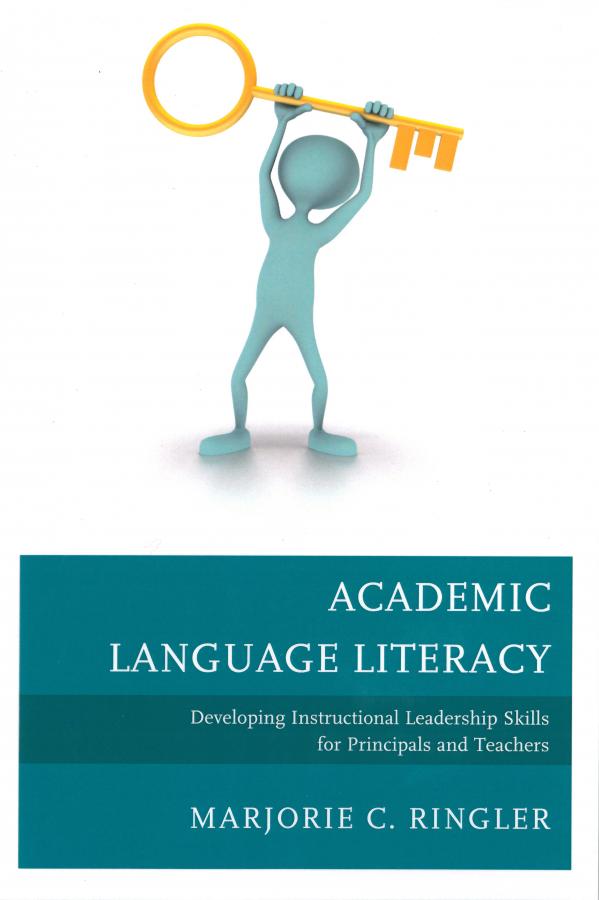Sections / Articles
Academic Language Literacy: Developing Instructional Leadership Skills for Principals and Teachers
 Marjorie C. Ringler.
Marjorie C. Ringler.
Rowman and Littlefield, 2015, 124 pp.
Principal, November/December 2015
Academic Language Literacy examines professional development and how it should be implemented in a school. Author Marjorie C. Ringler believes that the quality of a school’s professional development starts with the principal, who must not simply be a facilitator, or what she terms a “booking agent.” In the book, Ringler outlines her three-pronged approach to professional development, which includes content, context, and process.
Content refers to what’s to be learned and implemented. It must be research-based and appropriate to promote student success. When examining the content of professional development, the goal should be to provide teachers with the tools to integrate the content and academic language for proficiency.
Ringler identifies context as the role of the principal to provide organizational support that facilitates the implementation of what is to be learned during professional development. The author uses the term “CEO” or chief education officer. She stresses that the principal’s role is to provide feedback, work with teachers to provide peer feedback, learn from challenges, and celebrate successes. One point Ringler makes is that the successful districts and schools had engaging principals who offered and instilled a follow-up professional development plan.
The third prong of professional development is to clearly understand the process to ensure professional development is implemented correctly. The author states that time in the preparation and planning piece must be developed by working together as a team. Following up with teachers as they implement what they have learned in their professional development must also happen. Ringler spends a lot of space writing about job-embedded coaching and collaboration among teachers. Building the capacity of teacher leaders who are able to translate the strategies into practice will result in improved teaching and learning, she explains.
Professional development is an essential process for all educators to continue growing and improving their pedagogical expertise. This book provides relevant examples of how a principal can successfully implement professional development in an identified area of need, and how to coordinate and collaborate with others to make the professional development successful.
Reviewed by Allen Fain, principal of Pickens Elementary School in Pickens, South Carolina.
Copyright © National Association of Elementary School Principals. No part of the articles in NAESP magazines, newsletters, or website may be reproduced in any medium without the permission of the National Association of Elementary School Principals. For more information, view NAESP's reprint policy.
| Attachment | Size |
|---|---|
| PrincipalsBookshelf_ND15.pdf | 70.16 KB |